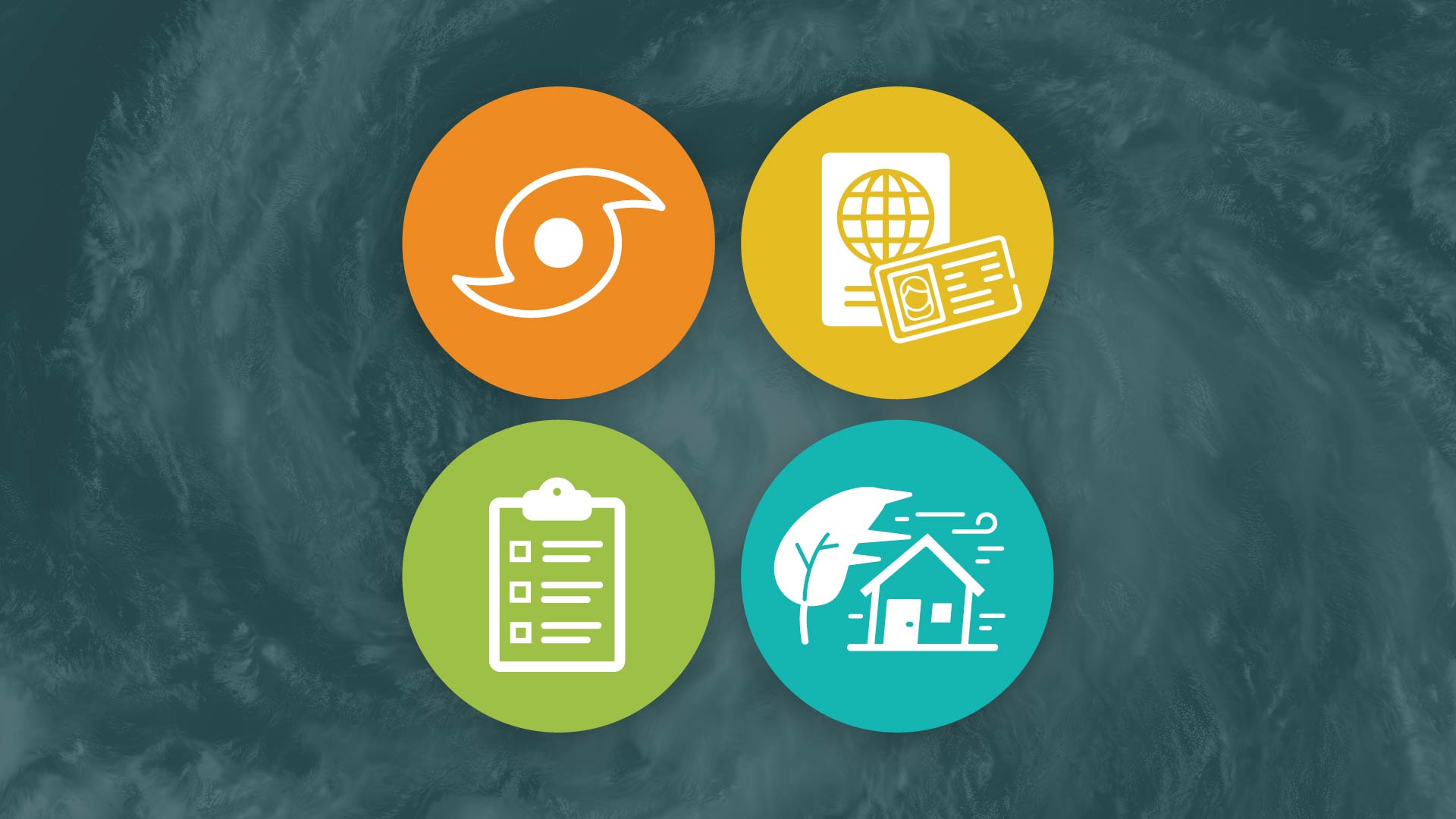As a hurricane rolls in, it can feel like there’s no time to get anything done. You’re scrambling to get gas, secure shutters and sandbags, maybe even evacuate. It’s easy to overlook even the simplest of things in the pre-storm frenzy. But, while you check off your list of plants to bring inside and valuables to move away from windows, don’t forget about your financial checklist.
In this blog, we’ll walk you through what to secure as the weather turns sour and how to bounce back when the sun comes up again.
Hurricane Preparedness
The first step on your hurricane financial checklist is securing your personal documents.
Don’t have a hurricane checklist? Click here to get started using the FEMA disaster checklist.
Start by gathering all the documents you may need in the event of a natural disaster— remember to grab documents for every person in your household. These may include:
- Social Security Cards
- Government IDs
- Passports
- Birth Certificates
- Marriage/Divorce Papers
- Home Titles or Deeds
- Car, Boat, RV, or any other vehicle registrations and titles
Most financial documents have digital backups you can use if the originals are lost; however, consider the documents you might need before, during, or immediately after a hurricane. We recommend keeping copies of your insurance polices close at hand in case you need them in a pinch.
Sunnyside Tip: If you keep the original copies of your important documents at home, be sure they’re in a weatherproof container and easily accessible.
Cleaning Up After the Storm
Clearing palm fronds, checking for water damage, and recuperating after a storm can be stressful— not to mention any financial issues you may face.
Reach out to us, or any other financial institution you currently have an account with, when the sun clears as there may be processes in place to help you handle your finances after a natural disaster. These may include:
- Adjusting repayment schedules on your loans or credit cards
- Refinancing existing loans or other debts to accommodate changes in your financial situation
- Increasing ATM, Bill Pay, or online withdrawal maximums
- Reducing or waiving fees for certain services
Sunnyside Tip: Keep an eye on your credit score. If you change the terms of your loan(s), be sure that’s reflected with credit reporters, so “missed payments” don’t affect your score.
Unfortunately, even when the sun is out, shady people are still about. Scammers and fraudsters like to take advantage of people after stressful situations like hurricanes. Be on the lookout for these potential scams in your area:
Don’t give personal information to people you don’t know. Scammers may impersonate government officials, insurance companies, or even your financial institution, in person, over the phone, and online. Remember to double-check any correspondence you receive by contacting the sender directly; never use a number or website provided to you by suspicious sources. Search their contact information yourself and reach out that way.
Keep an eye on prices. Beware of deals and “limited time only” discounts immediately after storms. If anyone offers to bump you up to the head of the line or asks you to pay with cash, wire transfers, or other hard-to-trace funds, be wary of their services.
Avoid making decisions under pressure. You have time to make decisions after a hurricane — anyone who insists otherwise may not have your best intentions in mind. And, remember, never sign anything without understanding or reading everything first!
The most important thing to do as a storm rolls in is to stay safe and stay prepared. Even when the sky gets dark, the sun is always ready to shine on the other side.
Have questions on the best way to weather a storm? We’re always happy to help. Contact us today!










